Apps Zone

Coursera: Grow your career
The Evolution and Significance of Online Learning Platforms in Professional Development
Online learning platforms have revolutionized the way professionals acquire knowledge, develop skills, and shape their careers, especially in an era where technological advancements and market dynamics demand continuous growth. Unlike traditional education systems that are rigid in time and location, online platforms offer immense flexibility, allowing learners to master new competencies at their own pace while balancing work and personal commitments. This transformative shift is grounded in advances in digital infrastructure, cloud computing, and mobile technologies that enable seamless access to educational materials globally. For example, highly interactive courses incorporating video lectures, real-time quizzes, and peer collaboration tools have increased engagement and retention, making learning more effective. The fusion of diverse pedagogical approaches such as flipped classrooms, gamification, and project-based assignments further enhances the absorption of complex concepts. Additionally, the integration of artificial intelligence tailors the learning journeys according to individual progress and preferences, identifying areas of strength and weaknesses on a granular level. This personalized pathway elevates professional development beyond standard one-size-fits-all models, encouraging mastery in fields like data science, programming, digital marketing, and cloud engineering, which are highly demanded in today’s labor market. Online learning platforms also serve as hubs for certification programs endorsed by renowned universities and industry leaders, offering verified credentials that increase employers’ confidence in a candidate’s abilities. This ecosystem interconnected with real-world projects reinforces a practical orientation, bridging the gap between academic theory and workplace application. For example, learners might undertake capstone projects such as developing a mobile application or analyzing large datasets using Python and machine learning tools, which mirror current industry challenges. This approach not only nurtures technical competencies but also cultivates problem-solving, critical thinking, and collaboration skills — essential attributes for progressing in competitive environments. Moreover, the democratization of education through these platforms counters geographical and socioeconomic barriers, enabling individuals from diverse backgrounds to access top-tier knowledge resources. This inclusivity fosters a more skilled and innovative workforce globally. Hence, the rise of online learning platforms is more than a convenience; it represents a paradigm shift in professional education that empowers individuals to control their careers strategically and dynamically adapt to evolving economic demands.
Designing a Holistic Online Learning Experience for Skill Acquisition and Career Advancement
Creating an online learning platform that effectively facilitates skill development and career progression requires intricate design principles combining technological prowess, educational psychology, and industry insights. A crucial aspect is structuring curriculum content to align with professional standards and job market trends, ensuring relevance and direct applicability. This often means collaborating with subject matter experts, certified instructors, and corporate partners to curate courses that cover both foundational theories and practical skills. For instance, a course in cybersecurity should not only cover cryptographic fundamentals but also hands-on simulation of threat detection and preventive strategies reflecting current cyber threats. The platform must also offer diverse learning paths tailored to different proficiency levels, whether beginners embarking on a new career or seasoned professionals enhancing niche specialties. Such scaffolding ensures that learners build a strong conceptual framework before tackling advanced topics, thereby minimizing cognitive overload and improving long-term retention. From the technological front, the platform should incorporate adaptive learning algorithms that continuously assess learner performance through formative assessments, adjusting content difficulty and pacing accordingly. Integration of multimedia resources—such as interactive visuals, real-time coding environments, and immersive virtual labs—further enriches the experiential quality and caters to various learning styles. Collaboration tools, including discussion forums and peer review systems, encourage knowledge exchange and networking, which are pivotal for professional growth. Additionally, incorporating professional certificate programs and degree offerings provides tangible milestones, motivating learners and enhancing their marketability. These credentials are often born from partnerships with globally recognized universities or industry leaders, embedding a seal of quality and trust. Another dimension is supporting soft skill development, encompassing communication, leadership, and project management, which are just as critical as technical prowess in career advancement. For example, project management modules could simulate real-world team dynamics and deadlines, teaching effective resource allocation and conflict resolution. Finally, the platform’s user interface must be intuitive and mobile-responsive, providing seamless access on laptops, tablets, and smartphones, enabling professionals to learn anytime and anywhere. Ensuring offline accessibility through downloadable content and audio-based lessons helps bridge connectivity gaps and accommodates busy schedules. In summary, a meticulously crafted online learning ecosystem synergizes curriculums, multimedia interactivity, personalized guidance, community engagement, and formal credentialing to holistically empower learners on their career growth journey.
Leveraging Industry Partnerships and Expert Instructors to Enhance Learning Outcomes
One of the cornerstone strengths of top-tier online learning platforms is their strategic collaboration with leading universities, corporations, and renowned experts that bring invaluable industry perspectives into the learning environment. These partnerships allow course content to be continuously updated to reflect the latest technological trends, regulatory changes, and business practices, which is vital for professionals eager to stay competitive. For example, a platform working closely with tech giants can deliver certifications in cloud technologies using the latest AWS or Azure environments while ensuring compliance with industry security standards. Similarly, academic collaborations with prestigious universities ensure that learners receive a curriculum based on cutting-edge research and pedagogical frameworks, blending theoretical rigor with practical application. Expert instructors affiliated with these institutions often bring extensive field experience, guiding learners through complex topics and offering nuanced insights that textbooks alone cannot provide. Their involvement in forums, live Q&A sessions, and feedback on projects enriches the learning journey by fostering direct mentorship and personalized support. This not only enhances motivation but also accelerates comprehension and skill mastery. Moreover, these partnerships enable access to exclusive resources such as proprietary software, datasets, and case studies, which add depth and realism to training modules. For instance, a data science program might use industry-grade tools and anonymized real-world datasets for hands-on analysis, bridging the gap between academic exercises and workplace challenges. Industry connections also facilitate internships, job placements, and networking opportunities, creating a direct pipeline from learning to employment. This ecosystem approach helps learners build professional relationships, gain visibility with recruiters, and navigate career transitions more smoothly. Furthermore, platforms with strong professional endorsements tend to have robust quality assurance measures, including standardized assessment methods, peer reviews, and continuous improvement cycles, ensuring that curricula remain relevant and effective. The infusion of diverse expertise, ranging from software development to business strategy and public health, exemplifies the comprehensive scope that benefits interdisciplinary learners addressing multifaceted challenges in their fields. Ultimately, the integration of industry partnerships and expert instructors transforms a static educational resource into an evolving, interactive ecosystem that relentlessly drives learner success and career impact.
Technological Innovations and Features Driving Flexibility and Accessibility in Learning
Technological advancements are at the core of empowering online learning platforms to deliver flexible, accessible, and effective educational experiences tailored to diverse professional needs. Modern platforms leverage cloud infrastructure to store vast libraries of courses and manage millions of concurrent users without latency or downtime, thus providing reliable on-demand access globally. The adoption of mobile-first design principles ensures that courses render beautifully and function seamlessly on smartphones and tablets, accommodating professionals who learn during commutes or breaks. Features such as downloadable video content facilitate offline learning, allowing users to engage with material in low-bandwidth or remote environments without interruption. Audio-supported courses, akin to podcasts, expand learning modalities further, letting individuals absorb complex subjects while multitasking or exercising. Advanced data analytics embedded in these platforms analyze user behavior, engagement metrics, and quiz results to provide learners with a personalized roadmap that emphasizes weak areas and suggests relevant supplementary materials. Artificial intelligence-driven chatbots and virtual assistants are becoming prominent for delivering instant support and guiding learners through challenges, enhancing their self-directed study capability. Moreover, platforms increasingly employ immersive technologies such as augmented reality (AR) and virtual reality (VR) to simulate hands-on scenarios that are otherwise impractical in online settings. For instance, a VR module on surgical techniques can give medical learners realistic procedural practice, bridging theoretical knowledge with kinesthetic learning. Integrations with external tools like coding environments, project management software, and collaboration suites allow dynamic and interactive project work, fostering teamwork and real-time problem solving essential in the industry. Subtitles and multi-language support democratize learning for a global audience, breaking language barriers and promoting diversity. Security protocols, including encrypted data transfers and secure payment gateways, protect learners' privacy and financial information, fostering trust in the platform. The ability to save progress seamlessly across devices encourages learning continuity, while push notifications and calendar syncing features help maintain consistent study habits. Collectively, these technological innovations create a learner-centric environment that maximizes convenience and efficacy, enabling professionals to master skills in a manner that accommodates their unique rhythms, locations, and access constraints, ultimately transforming lifelong learning into a flexible, achievable pursuit.
Expanding Career Horizons through Certifications, Specializations, and Degree Programs
One of the most compelling advantages of online learning platforms lies in their comprehensive offerings of professional certificates, specializations, and degree programs that serve as strong catalysts for career advancement and transformation. Professional certificates cater to immediate industry needs by providing concise yet thorough training focused on job-ready skills. These certifications often result from collaborations with technology companies, ensuring that learners gain experience in tools and processes currently valued by employers. For example, certificates in front-end development or data analysis equip learners with the right programming languages, frameworks, and analytical techniques necessary for entry-level roles. Beyond certificates, specializations aggregate multiple related courses into a coherent curriculum targeting deeper expertise in specific domains such as machine learning, digital marketing, or cloud computing. This structure supports learners in building mastery over time, often culminating in capstone projects that synthesize learned concepts into tangible deliverables. Such specialization not only enriches resumes but also opens doors to promotions and salary growth by demonstrating advanced competencies. At the pinnacle, fully accredited bachelor’s and master’s degree programs available through these platforms offer a cost-effective and accessible alternative to traditional university attendance. These degrees maintain rigorous academic standards while leveraging the online medium’s flexibility, allowing working professionals to pursue higher education without career disruption. Areas spanning business administration, computer science, social sciences, and health sciences cater to diverse professional interests. Beyond technical knowledge, these programs emphasize leadership, strategy, and innovation skills necessary to navigate complex organizational landscapes. Additionally, many platforms facilitate alumni networks and career services, offering résumé reviews, mock interviews, and employment matchmaking to support the transition from learner to employed professional. By accumulating certifications, specializations, or degrees, learners develop credible portfolios verified by reputable institutions, helping distinguish themselves in competitive markets. These credentials also boost confidence and empower continuous learning mindsets crucial for adapting to evolving professions. Ultimately, online learning platforms represent a vital ecosystem where individuals can construct customized educational pathways aligned with their ambitions, significantly broadening career horizons and enabling sustainable professional growth at every stage.
For professionals eager to benefit from such hybrid learning ecosystems, convenient mobile access via Download for Android and Download for iPhone ensures uninterrupted skill mastery and career progression on the go.
Share Your Opinion
Your Email Will Not Be Published.
All Rights Reserved © Apps Zone 2025
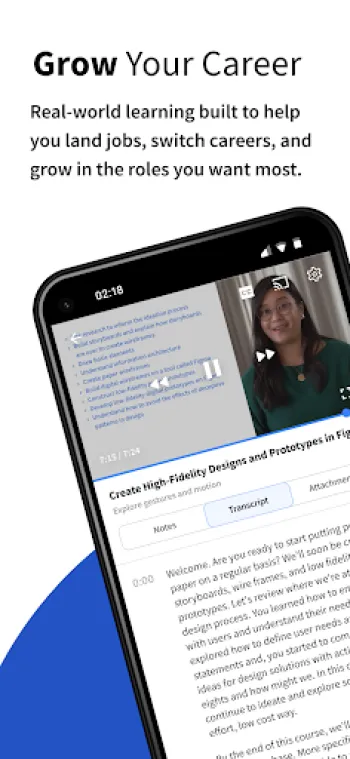
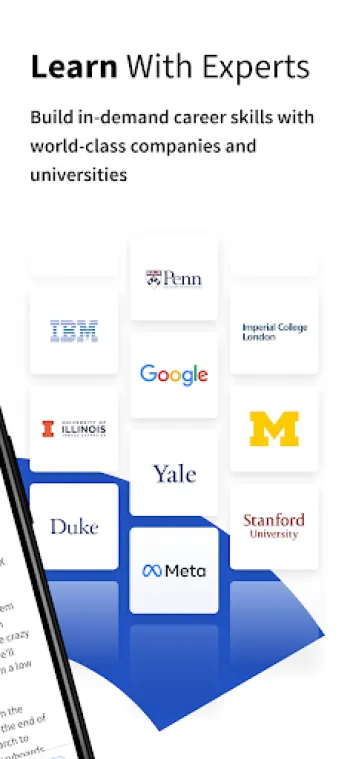
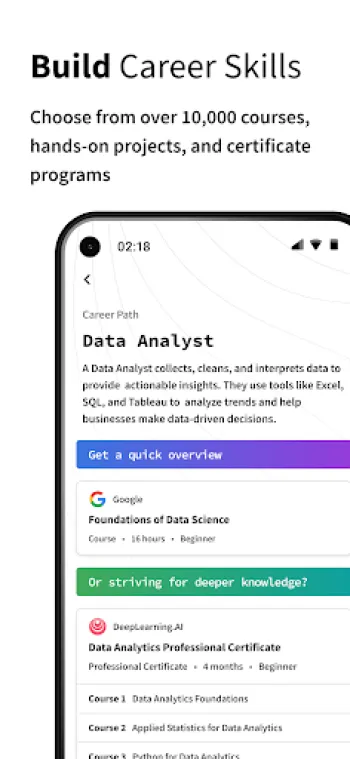
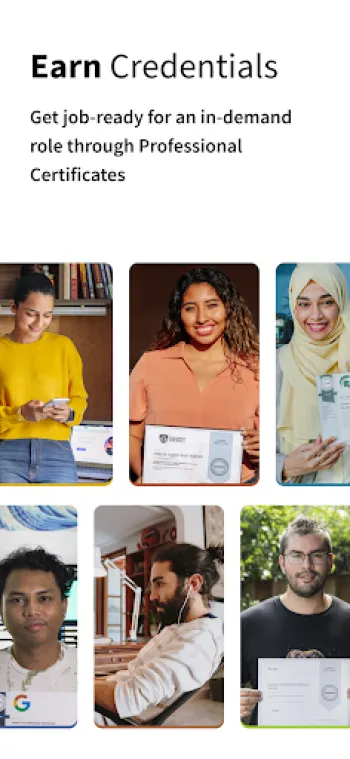
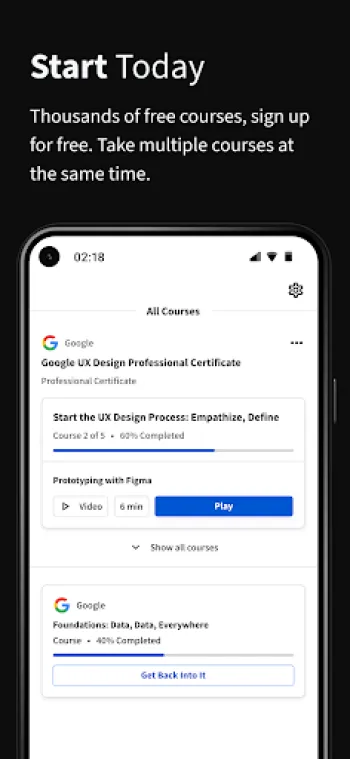
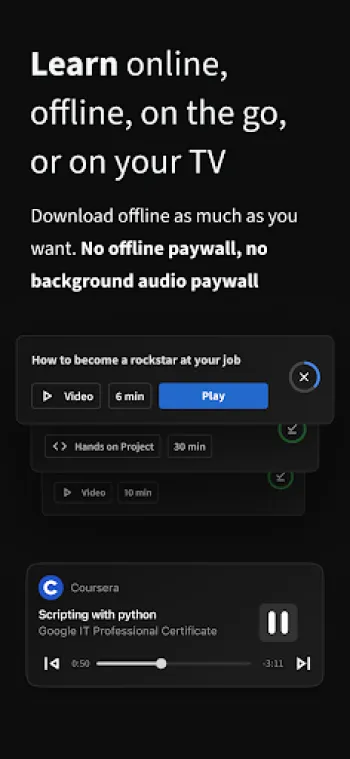
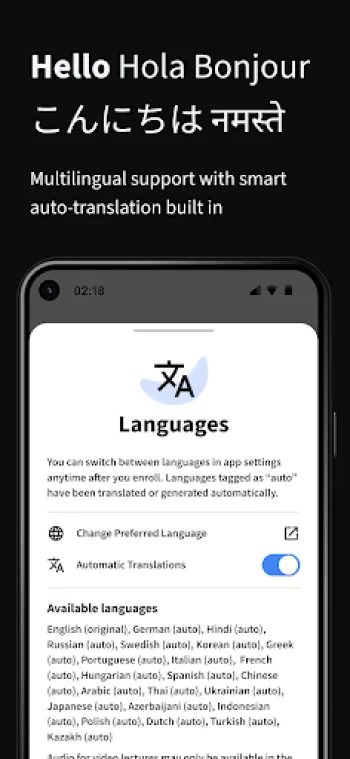








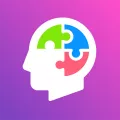






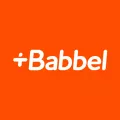
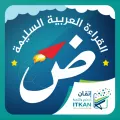







Stephanie Thompson
This is one of the best online degree apps I've used. Huge selection of courses to choose from, & set ur own pace. If you get busy , reset your due...
A Google user
This app is phenomenal. Who needs to pay to learn something when you can do it for free? If you do pay you're paying for a certification/degree. I ...
Jevon M.
Previously five, had to bump it to four. I don't know what happened but learning between app and browser would mess up the progress I made between ...
Marcus Allen
(Only reviewing the mobile version of Coursera) Could be better. doesn't do a good job of "capturing notes" and can't copy and paste notes on mobil...
Boy_Mom 129
So far, it's an easy experience. The app is easy to navigate, and the lessons are a cool "at your own pace" style. The biggest issue I have is not ...